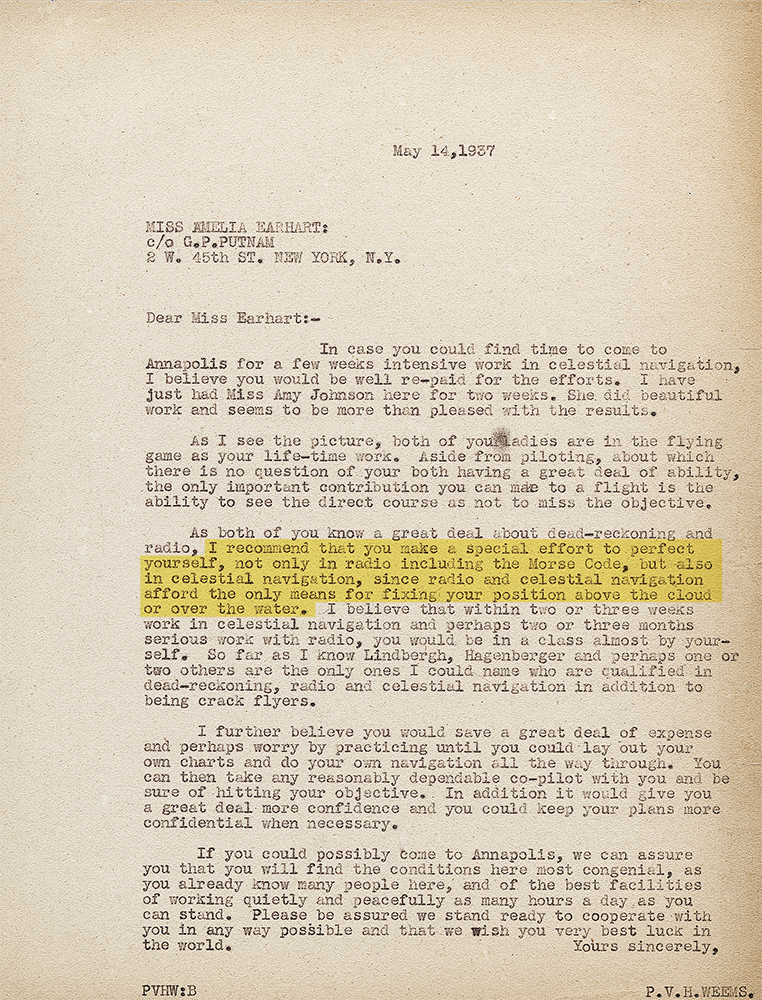
Date Created:
Year Created: 1937
Historical Theme:
Collection this Document is Affiliated with:
Description: Weems wrote this letter to Earhart after her near-disastrous takeoff attempt in Hawaii in 1937. Extra navigation training may not have kept Earhart from disaster, but it might have allowed to her appreciate shortcomings in planning an equipment.
Categories of Documents:
May 14, 1937
Miss Amelia Earhart:
c/o G.P. Putnam
2 W. 45th st. New York, N.Y.
Dear Mis Earhart:-
In case you could find time to come to Annapolis for a few weeks intensive work in celestial navigation, I believe you would be well re-paid for the efforts. I have just had Miss Amy Johnson here for two weeks. She did beautiful work and seems to be more than pleased with the results.
As I see the picture, both of you ladies are in the flying game as your life-time work. Aside from piloting, about which there is no question of your both having a great deal of ability, the only important contribution you can make to a flight is the ability to see the direct course as not to miss the objective.
As both of you know a great deal about dead-reckoning and radio, I recommend that you make a special effort to perfect yourself, not only in radio including the morse code, but also in celestial navigation, since radio and celestial navigation afford the only means for fixing your position above the clouds or over the water. I believe that within two or three weeks work in celestial navigation and perhaps two or three months serious work with radio, you would be in a class almost by yourself. So far as I know Lindbergh, Hagenberger and perhaps one or two others are the only ones I could name who are qualified in dead-reckoning, radio and celestial navigation in addition to being crack flyers.
I further believe you would save a great deal of expense and perhaps worry by practicing until you could lay out your own charts and do your own navigation all the way through. You can then take any reasonably dependable co-pilot with you and be sure of hitting your objective. In addition it would give you a great deal more confidence and you could keep your plans more confidential and necessary.
If you could possibly come to Annapolis, we can assure you that you will find the conditions here most congenial, as you already know many people here, and of the best facilities of working quietly and peacefully as many hours a day as you can stand. Please be assured we stand ready to cooperate with you in any way possible and that we wish you very best luck in the world.
Yours sincerely,
P.V.H Weems.
Citation:
National Museum of American History, Smithsonian Institution

